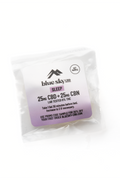What Is CBD?
Is CBD Legal in all 50 states?
The bill also legalized the transport of hemp products across state lines. Furthermore, people can now sell and possess cannabis goods, including CBD, as long as they abide by the bill’s rules. Thanks to the bill, hemp is legal in all fifty states. However, the legality of CBD is still confusing for many. The legality depends on the source of the CBD.
‘Marijuana’-derived CBD is not legal federally. Both marijuana and hemp are members of the cannabis family making them similar in many ways. The government classifies hemp as any plant of the cannabis family that contains less than 0.3% THC. It classifies “marijuana” as any plant of the cannabis family that contains greater than 0.3% THC. “Marijuana” cannabis plants have a low percentage of CBD than hemp plants. That’s why most CBD products use CBD from hemp not marijuana. Because marijuana has higher concentration of THC, it’s not an ideal choice for producing CBD products. Using marijuana plants would require extracting some of the THC to make CBD within the legal limits.
Hemp cannabis plant have a high amount of CBD and low THC, making them the most efficient plant for CBD processing. So the bottom line here is, if your CBD comes from hemp, it is legal. CBD made from “marijuana” with high levels of THC, is only legal if your state legalized marijuana.
Where is CBD illegal? Thanks to the passing of the 2018 Farm Bill, zero THC CBD is not illegal in any state in the USA. That said, since the change in law is relatively new, some states might not fully embrace CBD. This should change with the new bill, however, it may take time. Below we outline four different jurisdictional categories based on pre-2018 Farm Bill practices.
States can be grouped into four jurisdictional categories.
Friendly States: In these jurisdictions industrial hemp grown in a Farm Bill-compliant agricultural pilot program is explicitly exempted from the definition of marijuana. These jurisdictions include: The District of Columbia, Hawaii, Kansas, Montana, New Mexico, North Dakota, and Oklahoma.
Gray Area States: In these jurisdictions explicit prohibitions against the retail sale of industrial hemp-derived CBD products but that have exemptions in the law for the argument that hemp-derived CBD products are legal. These jurisdictions include: Arkansas, Delaware, Florida, Georgia, Idaho, Iowa, Louisiana, Maine, Massachusetts, Minnesota, Mississippi, New Hampshire, New Jersey, Pennsylvania, Texas, Virginia, and Washington.
States with Concern: These jurisdictions have no explicit prohibitions against the sale of industrial hemp-derived CBD products. However, recent law enforcement actions or pronouncements raise the risk of the retail sale of industrial hemp-derived CBD products. These jurisdictions include: Alabama, Arizona, California, Connecticut, Michigan, Nebraska, Nevada, Ohio, South Dakota, West Virginia, and Wyoming.

